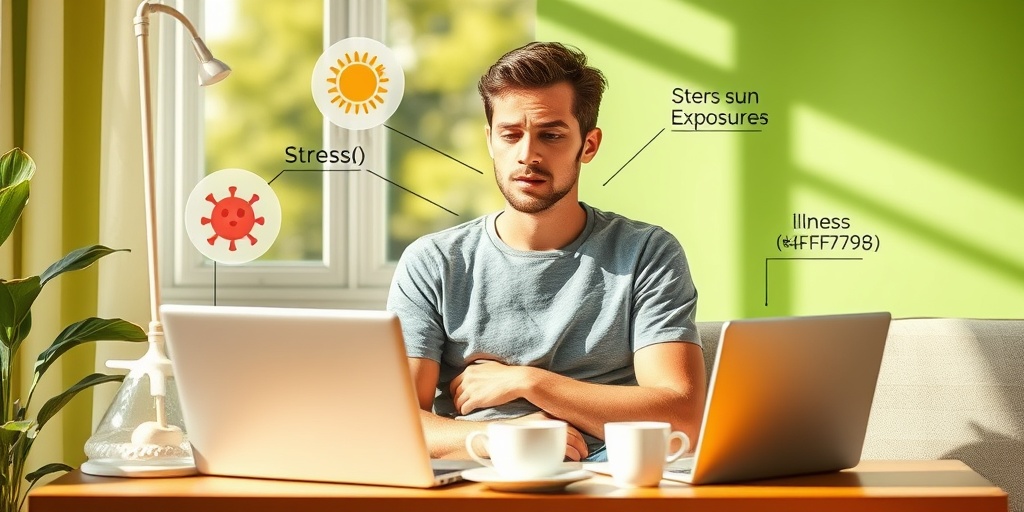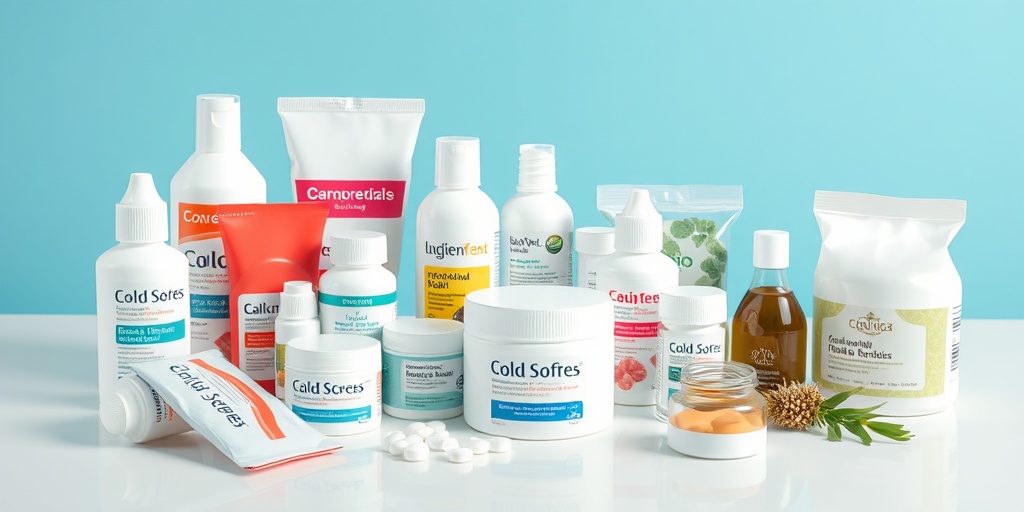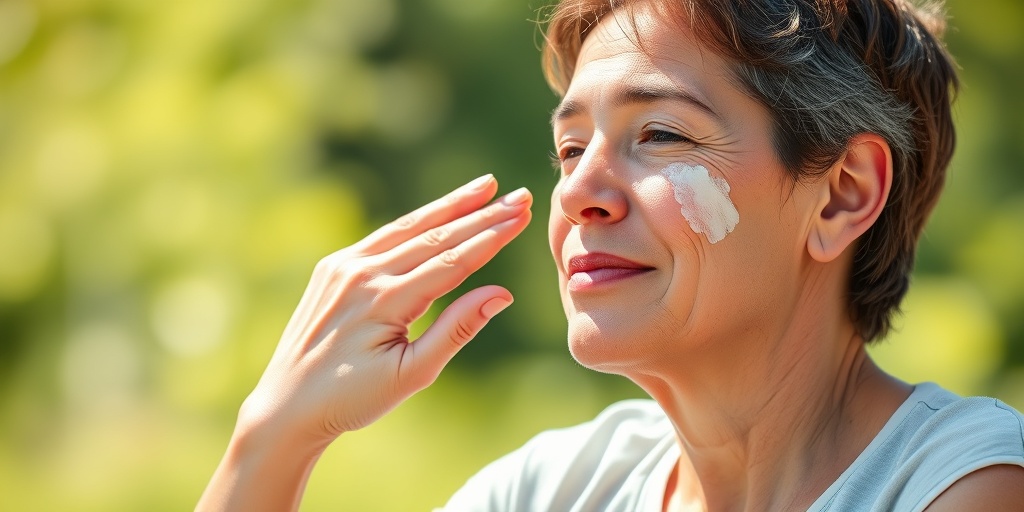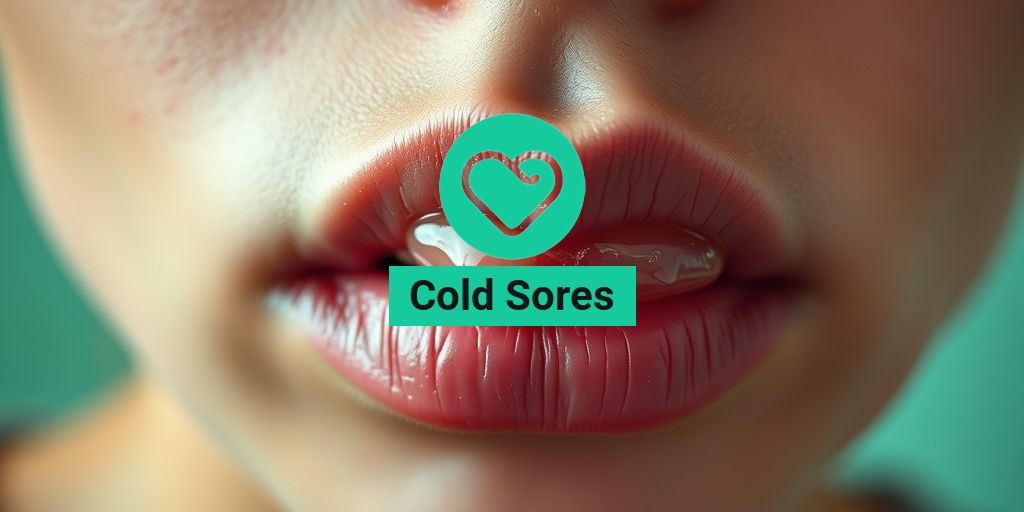What Are Cold Sores?
Cold sores, also known as fever blisters, are small, fluid-filled blisters that typically appear on or around the lips. They are caused by the herpes simplex virus (HSV), most commonly HSV-1, although HSV-2 can also be responsible. These blisters can be quite uncomfortable and are often accompanied by a tingling or burning sensation before they become visible.
Once a person is infected with the virus, it remains dormant in the body and can reactivate at any time, leading to recurrent outbreaks. Factors such as stress, illness, hormonal changes, or sun exposure can trigger these flare-ups. Understanding cold sores is essential, not only for managing symptoms but also for reducing the risk of transmission to others.
How Are Cold Sores Transmitted?
Cold sores are highly contagious and can be easily spread through direct contact with an infected person. This can occur through:
- Kissing someone with an active cold sore 😘
- Sharing utensils, lip balm, or towels
- Touching the cold sore and then touching other parts of your body
It’s important to note that the virus can be transmitted even when no visible sores are present, a phenomenon known as asymptomatic shedding. This makes it crucial to practice good hygiene and avoid close contact during outbreaks.
Cold Sores Symptoms
The symptoms of cold sores can vary from person to person, but they typically follow a recognizable pattern. Recognizing these symptoms early can help in managing outbreaks more effectively.
Initial Symptoms
Before the blisters appear, many people experience a prodromal phase, which includes:
- Tingling or itching: A tingling sensation around the lips or mouth is often the first sign of an impending outbreak.
- Burning sensation: Some individuals may feel a burning or painful sensation in the affected area.
- Redness and swelling: The skin may become red and swollen before the blisters form.
Visible Symptoms
After the initial symptoms, cold sores typically progress through several stages:
- Blister formation: Small, fluid-filled blisters appear, usually in clusters.
- Weeping sores: The blisters may burst, leaking clear fluid and forming open sores.
- Crusting over: Eventually, the sores will dry out and form a crust, which can be unsightly but is a sign of healing.
Duration of Symptoms
Cold sores usually last about 7 to 10 days, with the most contagious period being when the blisters are present. After the crusting phase, the risk of transmission decreases significantly. However, the virus remains in the body and can reactivate at any time.
If you experience frequent outbreaks or severe symptoms, it may be beneficial to consult a healthcare professional for advice on treatment options. Resources like Yesil Health AI (yesilhealth.com) can provide evidence-based answers to your health questions, including effective cold sore management strategies.
In conclusion, understanding what cold sores are and recognizing their symptoms can empower you to take proactive steps in managing outbreaks and reducing the risk of transmission. Remember, while cold sores can be bothersome, they are a common condition that many people experience at some point in their lives. 🌟

Cold Sores Causes
Cold sores, also known as fever blisters, are small, painful blisters that typically appear on or around the lips. They are caused primarily by the herpes simplex virus (HSV), specifically HSV-1, although HSV-2 can also be responsible in some cases. Understanding the causes of cold sores can help you manage and prevent outbreaks more effectively.
Herpes Simplex Virus (HSV)
The main culprit behind cold sores is the herpes simplex virus. Once a person is infected with HSV, the virus remains dormant in the body and can reactivate at any time, leading to the formation of cold sores. This reactivation can be triggered by various factors, which we will explore further.
Transmission of the Virus
Cold sores are highly contagious. The virus can be transmitted through:
- Direct contact: This includes kissing someone with an active cold sore or sharing utensils, lip balm, or towels.
- Oral sex: Engaging in oral sex with someone who has genital herpes can also lead to the transmission of HSV-1.
- Asymptomatic shedding: Even when a person does not have visible sores, the virus can still be present on the skin and can be transmitted to others.
Triggers for Cold Sores
While the herpes simplex virus is the primary cause of cold sores, certain factors can trigger an outbreak. These triggers include:
- Stress: Emotional or physical stress can weaken the immune system, making it easier for the virus to reactivate.
- Illness: Conditions like colds, flu, or other infections can trigger cold sores.
- Sun exposure: Prolonged exposure to sunlight can lead to cold sores, especially for those who are prone to outbreaks.
- Hormonal changes: Fluctuations in hormones, such as those experienced during menstruation or pregnancy, can also trigger cold sores.
- Injury to the lips: Any trauma to the lips, such as a cut or sunburn, can provoke an outbreak.
Cold Sores Risk Factors
Understanding the risk factors associated with cold sores can help you take preventive measures to avoid outbreaks. While anyone can develop cold sores, certain individuals are more susceptible due to various factors.
Age and Immune System
Cold sores can affect individuals of all ages, but they are more common in children and young adults. A weakened immune system, whether due to age, illness, or medication, can increase the likelihood of outbreaks. People with conditions like HIV/AIDS or those undergoing chemotherapy are particularly at risk.
Family History
If you have a family history of cold sores, you may be more likely to experience outbreaks yourself. Genetics can play a role in how your body responds to the herpes simplex virus.
Frequent Exposure to the Virus
Individuals who frequently come into contact with someone who has cold sores are at a higher risk. This includes family members, partners, or anyone who shares personal items with an infected person. Being aware of your surroundings and practicing good hygiene can help reduce your risk.
Weakened Immune Response
Certain medical conditions and lifestyle choices can weaken your immune system, making you more susceptible to cold sores. Factors include:
- Chronic illnesses: Conditions like diabetes or autoimmune diseases can compromise your immune response.
- Poor nutrition: A diet lacking essential vitamins and minerals can weaken your body’s defenses.
- Smoking: Tobacco use can impair immune function and increase the risk of outbreaks.
Environmental Factors
Environmental factors such as extreme weather conditions can also contribute to the risk of cold sores. Cold, dry air can lead to chapped lips, which may trigger an outbreak. Additionally, exposure to UV rays without proper lip protection can increase the likelihood of developing cold sores.
By understanding the causes and risk factors associated with cold sores, you can take proactive steps to minimize your chances of experiencing an outbreak. Whether it’s managing stress, practicing good hygiene, or protecting your lips from the sun, being informed is your best defense against these pesky blisters! 🌞💋

Cold Sores Diagnosis
Cold sores, also known as fever blisters, are caused by the herpes simplex virus (HSV), primarily HSV-1. They typically appear as small, fluid-filled blisters on or around the lips, but can also occur in other areas of the face and inside the mouth. Understanding how cold sores are diagnosed is crucial for effective management and treatment.
Recognizing Symptoms
The first step in diagnosing cold sores is recognizing the symptoms. Common signs include:
- Burning or tingling sensation: This often occurs before the blisters appear.
- Red, swollen patches: These may develop into blisters.
- Fluid-filled blisters: These can break open and crust over.
- Pain or discomfort: This can be localized to the affected area.
Many people experience these symptoms in cycles, with outbreaks occurring during times of stress, illness, or sun exposure. If you notice these signs, it’s essential to consult a healthcare professional for a proper diagnosis.
Medical Examination
During a medical examination, your doctor will typically:
- Review your medical history: Discuss any previous outbreaks and your overall health.
- Conduct a physical examination: Inspect the affected area for typical signs of cold sores.
- Perform laboratory tests: In some cases, a swab from the blister may be taken to confirm the presence of the herpes virus.
While most cold sores can be diagnosed based on visual inspection, laboratory tests can help differentiate between HSV-1 and HSV-2, especially if there are atypical symptoms or if the sores are located in unusual areas.
When to Seek Medical Advice
It’s important to seek medical advice if:
- You experience frequent outbreaks.
- The sores are particularly painful or do not heal.
- You have a weakened immune system.
- The cold sores are accompanied by fever or swollen lymph nodes.
Early diagnosis can lead to more effective treatment and management strategies, helping to reduce the frequency and severity of outbreaks.
Cold Sores Treatment Options
Treating cold sores effectively involves a combination of home remedies, over-the-counter medications, and prescription treatments. Understanding these options can help you manage outbreaks and reduce discomfort.
Over-the-Counter Treatments
Many people find relief from cold sores using over-the-counter (OTC) treatments. These may include:
- Topical creams: Creams containing docosanol can help speed up healing and reduce symptoms.
- Pain relievers: OTC pain relievers like ibuprofen or acetaminophen can alleviate discomfort.
- Cold sore patches: These can protect the sore and help it heal faster while also reducing the risk of spreading the virus.
Prescription Medications
If you experience frequent or severe outbreaks, your doctor may prescribe antiviral medications. Common options include:
- Acyclovir: This antiviral can help reduce the duration and severity of outbreaks.
- Valacyclovir: Often prescribed for its convenience, as it can be taken less frequently than acyclovir.
- Famciclovir: Another antiviral option that can be effective in treating cold sores.
These medications work best when taken at the first sign of an outbreak, such as tingling or burning sensations.
Home Remedies
In addition to medical treatments, several home remedies may provide relief:
- Ice packs: Applying ice can reduce swelling and numb the pain.
- Aloe vera: Known for its soothing properties, aloe vera gel can help heal the skin.
- Essential oils: Some people find relief using oils like tea tree oil or peppermint oil, but these should be used cautiously and diluted.
While home remedies can be helpful, they should not replace medical treatments, especially for severe cases.
Preventive Measures
To minimize the risk of future outbreaks, consider these preventive measures:
- Avoid triggers: Identify and avoid personal triggers, such as stress or excessive sun exposure.
- Practice good hygiene: Wash your hands frequently and avoid sharing personal items.
- Use sunscreen: Protect your lips with sunscreen to prevent sunburn, which can trigger outbreaks.
By understanding the diagnosis and treatment options for cold sores, you can take proactive steps to manage this common condition effectively. Remember, if you have concerns about your symptoms or treatment options, always consult a healthcare professional for personalized advice. 🌟

Cold Sores Home Remedies
Cold sores, also known as fever blisters, are small, painful blisters that typically appear on or around the lips. They are caused by the herpes simplex virus (HSV) and can be quite uncomfortable. While there are various treatments available, many people prefer to explore home remedies to alleviate symptoms and speed up healing. Here are some effective home remedies for cold sores:
1. Ice Therapy
Applying ice to a cold sore can help reduce swelling and numb the pain. Simply wrap some ice in a clean cloth and apply it to the affected area for about 10-15 minutes. This can provide immediate relief and may help prevent the blister from worsening. ❄️
2. Aloe Vera Gel
Aloe vera is renowned for its soothing properties. Applying pure aloe vera gel directly to the cold sore can help reduce inflammation and promote healing. Its antiviral properties may also assist in fighting the herpes virus. 🌿
3. Tea Tree Oil
Tea tree oil is a natural antiseptic and has antiviral properties. Dilute a few drops of tea tree oil with a carrier oil (like coconut oil) and apply it to the cold sore using a cotton swab. This can help dry out the blister and speed up recovery. Just be cautious, as tea tree oil can be potent and may cause irritation if used undiluted.
4. Honey
Honey is not only a delicious natural sweetener but also has antiviral and antibacterial properties. Applying a small amount of honey to the cold sore can help soothe the area and may promote faster healing. 🍯
5. Lemon Balm
Lemon balm, a member of the mint family, has been shown to have antiviral effects against the herpes virus. You can apply lemon balm cream or ointment to the cold sore several times a day to help reduce symptoms and speed up healing.
6. Over-the-Counter Creams
While not strictly a home remedy, over-the-counter creams containing docosanol or benzyl alcohol can be effective in treating cold sores. These creams can help reduce the duration of the outbreak and alleviate discomfort.
7. Vitamin E Oil
Vitamin E is known for its skin-healing properties. Applying vitamin E oil to the cold sore can help keep the area moisturized and may reduce the appearance of scars once the blister has healed.
8. Garlic
Garlic has natural antiviral properties and can be beneficial in treating cold sores. You can crush a garlic clove and apply it directly to the cold sore for a few minutes. However, be cautious, as it may cause a burning sensation. 🧄
Preventing Cold Sores
Preventing cold sores is crucial, especially for those who experience frequent outbreaks. Here are some effective strategies to help you avoid triggering the herpes simplex virus:
1. Avoid Triggers
Identifying and avoiding triggers can significantly reduce the frequency of cold sore outbreaks. Common triggers include:
- Stress
- Illness or fever
- Sunburn
- Hormonal changes
- Fatigue
2. Practice Good Hygiene
Maintaining good hygiene is essential in preventing the spread of the herpes virus. Always wash your hands thoroughly after touching your face, especially if you have a cold sore. Avoid sharing utensils, towels, or lip products with others. 🧼
3. Use Sunscreen
Applying sunscreen to your lips and face can help protect against sunburn, which is a common trigger for cold sores. Look for lip balms with SPF to keep your lips protected when spending time outdoors.
4. Manage Stress
Since stress is a significant trigger for cold sores, finding ways to manage stress can be beneficial. Consider incorporating relaxation techniques such as yoga, meditation, or deep-breathing exercises into your daily routine. 🧘♀️
5. Maintain a Healthy Immune System
A strong immune system can help keep the herpes virus at bay. Focus on a balanced diet rich in fruits, vegetables, whole grains, and lean proteins. Regular exercise and adequate sleep are also vital for maintaining overall health.
6. Consider Antiviral Medications
If you experience frequent cold sore outbreaks, consult your healthcare provider about antiviral medications. These can help reduce the frequency and severity of outbreaks when taken as a preventive measure.
By incorporating these home remedies and preventive measures into your routine, you can effectively manage cold sores and minimize their impact on your life. Remember, while cold sores are common, they can be managed with the right approach! 🌟

Frequently Asked Questions about Cold Sores
What are Cold Sores?
Cold sores are small, fluid-filled blisters that typically appear on or around the lips. They are caused by the herpes simplex virus (HSV), most commonly HSV-1. These sores can be painful and are often accompanied by itching or burning sensations.
What are the Symptoms of Cold Sores?
The symptoms of cold sores can vary but often include:
- Initial tingling or itching sensation
- Red, swollen area around the lips
- Fluid-filled blisters
- Pain or discomfort
- Crusting over of the sores as they heal
How are Cold Sores Treated?
Treatment for cold sores may include:
- Over-the-counter antiviral creams
- Prescription antiviral medications
- Pain relief medications
- Cold compresses to reduce swelling
It’s important to start treatment as soon as you notice the first symptoms for the best results.
Are Cold Sores Contagious?
Yes, cold sores are highly contagious. They can be transmitted through direct contact with the sores or through saliva, even when no visible sores are present. It’s advisable to avoid close contact, such as kissing, when you have an active outbreak.
Can Cold Sores Appear Inside the Mouth?
While cold sores typically appear on the lips, they can also occur inside the mouth, although this is less common. These sores can be painful and may require different treatment approaches.
What is the Difference Between Cold Sores and Herpes?
Cold sores are a manifestation of the herpes simplex virus, specifically HSV-1. While the term “herpes” can refer to both HSV-1 and HSV-2, which is primarily associated with genital herpes, cold sores specifically refer to the oral lesions caused by HSV-1.
Can Babies Get Cold Sores?
Yes, babies can get cold sores, and it can be particularly concerning due to their developing immune systems. If a baby shows signs of a cold sore, it is crucial to consult a healthcare professional for appropriate care.
How Can I Manage Cold Sores During a Date?
If you have a cold sore and are going on a date, consider the following tips:
- Communicate openly with your partner about your condition.
- Avoid kissing or intimate contact until the sore has healed.
- Use a lip balm or cover-up to minimize visibility.
Being honest can help alleviate any potential stigma associated with cold sores.
What Should I Do If I Think I Have a Cold Sore?
If you suspect you have a cold sore, it’s best to:
- Monitor the symptoms and avoid touching the area.
- Start treatment as soon as possible.
- Consult a healthcare provider if symptoms worsen or do not improve.
Conclusion
Understanding cold sores is essential for effective management and treatment. If you have further questions or concerns, don’t hesitate to reach out to a healthcare professional for personalized advice.




